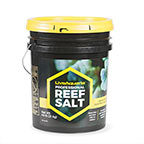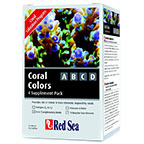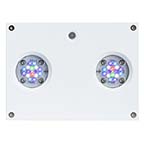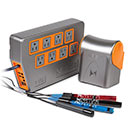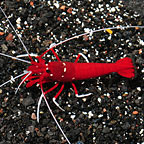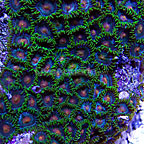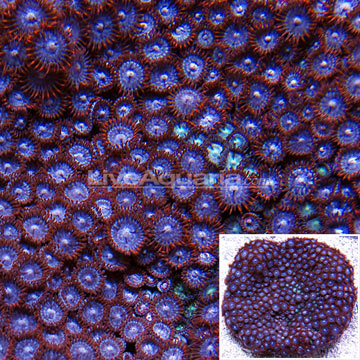
Additional locales and sizes may be available!
Additional locales and sizes may be available! Email me when availableQuick Stats
What do these Quick Stats mean? Click here for more information
What do these Quick Stats mean? Click here for more information
Overview
The Horizon Colony Polyp adds a stunning yet harmonious flush of color accentuated by the repeating, colonial nature of the polyp corals. Over time, an established colony of Horizon Colony Polyp will create a living tapestry of exquisite beauty for a refined reef aquarium display.
The Horizon Colony Polyp is a spectacular color variety of Zoanthus Colony Polyp Corals (also known as Sea Mats, or Button Polyps). As colonial animals, the Horizon Colony Polyp is made up of multiple individual polyps attached to a piece of live rock.
The Horizon Colony Polyp has the ability to sting other polyps or corals. While the sting is not strong, be sure to provide sufficient space between the Horizon Colony Polyp and other corals because of its semi-aggressive temperament and potential to crowd out neighbors.
Similar to other Zoanthus Colony Polyp Corals, the Horizon Colony Polyp is easy to maintain, making it a good choice for beginner reef aquarists. The Horizon Colony Polyp requires moderate light levels combined with medium water movement within the aquarium. For continued good health, the Horizon Colony Polyp will also require the addition of iodine and other trace elements.
Under ideal conditions, the Horizon Colony Polyp will multiply without difficulty in home reef aquariums by budding (splitting off a portion of their base or mouth) to increase the size of the colony. The Horizon Colony Polyp contains the symbiotic algae zooxanthellae which satisfies almost all of its nutritional requirements. If the lighting is not optimal, the Horizon Colony Polyp should be fed micro-plankton or baby brine shrimp.
It is common to receive a rock that is not completely covered in polyps. However, under the right conditions, they will quickly spread across this and surrounding rocks in the aquarium.
Approximate Purchase Size: 2" to 3-1/4"




